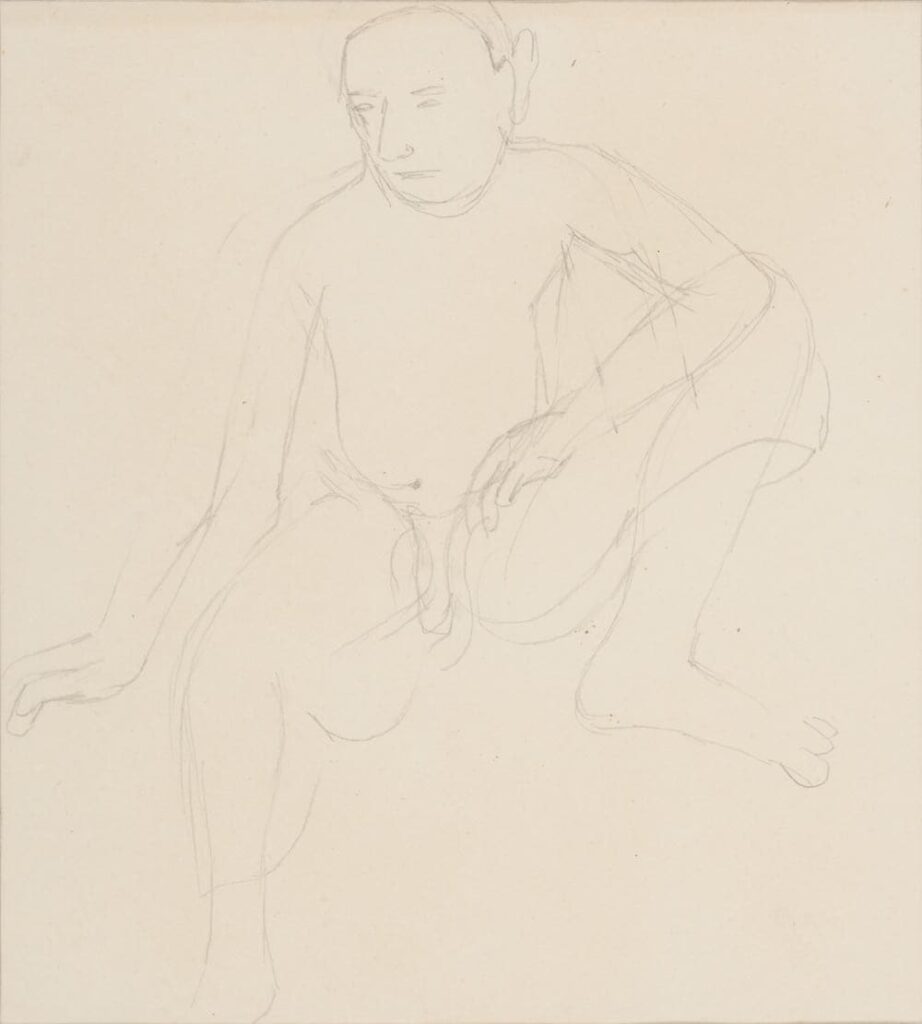Bhupen Khakhar
(b. 1934-2003)
Bhupen Khakhar is regarded as a pioneer who brought the worlds of fine arts and popular visual culture under one canopy. His works were often narrative and autobiographical, figurative and concerned with the human body and its identity. A self-professed homosexual, the problem of gender definitions, identity and the personal and cultural implications of same-sex intimacy from a distinct Indian perspective was a major theme of his work. Khakhar’s paintings often contained learned references to Indian mythological themes as well as imaginative and deeply personal references. He has often been linked to the Pop Art movement and parallels have been drawn to the work of David Hockney.
Khakhar started his career as a chartered accountant but after meeting the poet and painter Gulammohammed Sheikh in 1958, he enrolled himself for a two-year Masters in Art criticism at The Maharaja Sayajirao University, Baroda in 1962. During his time in Baroda, he edited ‘Vrishchik’, an art magazine with Gulammohammed Sheikh. He was the first artist of Indian origin to be selected for Documenta IX in Kassel back in 1992 and has exhibited at illustrious venues across the world, including the Tate Modern, London; Japan Foundation, Tokyo; Jehangir Art Gallery, Mumbai; the Centre Pompidou, Paris; the National Gallery of Modern Art, New Delhi; The Gate Foundation, Amsterdam and The Museo Nacional Centre de Arte Reina Sofia, Madrid. Khakhar was honoured with the Prince Claus Award at the Royal Palace of Amsterdam in 2000, the Asian Council’s Starr Foundation Fellowship in 1986, and the Padma Shri in 1984. His work was recently shown at ‘Art Mumbai’ with LATITUDE 28, Mumbai in 2023 and ‘The Print: Matter in Matrix’, presented by LATITUDE 28 at Shridharani Gallery, New Delhi in 2020. In 2016, Tate Modern presented the first international retrospective ‘You Can’t Please All’ since his death. He has also done a set of prints for two stories by Salman Rushdie, ‘Free Radio’ and ‘The Prophet’.
